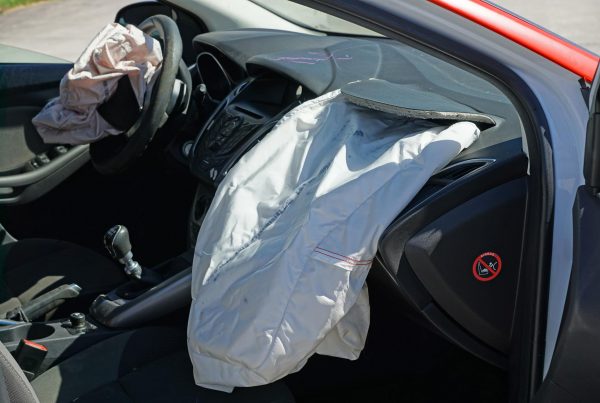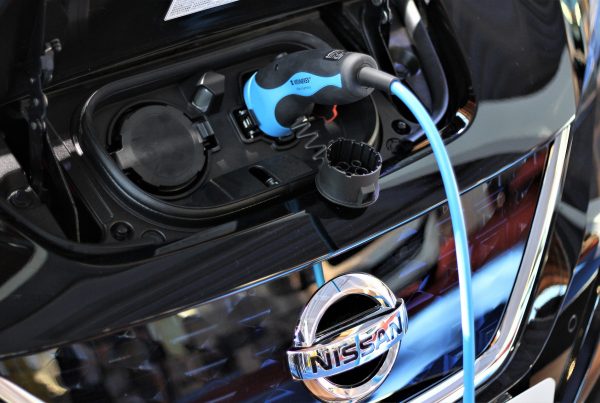- Audi’s Race To Decarbonization - 10/05/2022

The race automakers have embarked on towards the electrification of their products is already an unstoppable reality. Especially those based in Europe, which are also obliged to comply with what was agreed in the Green Deal just four years ago. These agreements set ambitious targets for the decarbonization of the economy, which directly impacts the public and private transportation sectors.
In this process, the Green Deal sets the primary goal of achieving climate neutrality by 2050. However, to achieve this, several stages must be completed first, which means that the transport sector faces major challenges in the coming decades.
European manufacturers have therefore got down to work and have drawn up their decarbonization plans for their products.
Decarbonization And Profitability At Audi
At Audi, we have a clear plan for the transition to electromobility with which we aim to have around 20 electrified models available in the market by 2025. By 2026, only fully electric models will be launched. After one year, we will offer electric models in all major segments. This is because electric cars are superior to their competitors and on a massive scale.
As a premium brand, Audi’s strategic plan includes the production of the last ICE in 2033 as part of an ambitious growth trajectory. Thus, by 2030, we want to deliver 3 million cars per year, which is 50% more than today.
At the same time, profitability is also a crucial element for the brand with the four rings. That is why, by increasing the group’s synergies, we aim to achieve a sustainable return on sales of 11% by 2030.
Therefore, profitability is an important factor in any decision-making process for a new product at Audi. So much so that the BEVs we bring to market must contribute as much to the financial targets as their ICEs.
Along these lines, as a member of the Volkswagen Group, both brands benefit from crucial synergies. For example, by making use of MEB electric architectures, which are a set of modular electric drive tools, and PPE (Premium Platform Electric), a specific platform for new generation electric vehicles. With it, decisive scale effects are procured uniquely in the competitive environment.
The global production network is one of Volkswagen Group’s greatest assets. Experience has shown that a platform-oriented production strategy has many advantages. This process generates profit in f investments, factory costs and logistics. It also optimizes resources and production capacity. Therefore, we look for synergies in the group wherever possible and try to generate the overall optimum for all plants. This strategy has proven to work excellently. As a result, our electric cars will stand out from the new competition by their technology, design, driving comfort, and quality.
In fact, for years now, we have been producing the Audi Q7 and Audi Q8 along with the VW Touareg and Porsche Cayenne at the VW plant in Bratislava. The same applies to the highly modern multi-brand plant in Zwickau, where the Audi Q4 e-tron started production in 2021 along with VW ID.4, and ID.5 and the Cupra Born. Moreover, the Audi Q4 e-tron is one hundred percent totally Audi and in high demand by our customers.
In addition, increasing driver demand for BEVs and decreasing battery costs will positively affect sales profitability. Therefore, we expect BEVs to approach a profit margin close to that of internal combustion engine cars in the next two to three years.
A proposed change that affects not only profitability but also organizational effectiveness.
At Audi, Everything Revolves Around Partnerships
At Audi, we involve our suppliers as much as possible in developing new technologies and innovations. A good example of this is the CO2 program of our procurement department: in workshops with our suppliers, we identify possibilities for reducing CO2 even in the initial production phase of our cars when the parts supplied are not even in our factories. In these workshops, we see the high utilization of green electricity and the opportunities offered by the use of recycled materials.
The use of green energy is key not only for giving a twist to the manufacture of vehicles but also for powering them. Audi has therefore entered a strategic agreement with IONITY.
The latter already offers fast-charging solutions along European freeways that only run on green energy. In addition, Volkswagen Naturstrom, a subsidiary of the Volkswagen Group, offers home charging solutions for customers and organizes contacts with local suppliers.
And with our recently opened Audi charging center in Nuremberg, we have established the pilot location to test our new charging concept for a sustainable, flexible, and quality-oriented fast-charging infrastructure in urban areas.
Battery Recycling, The Challenge Ahead
Parallel to the development of technology aimed at the manufacture of electric cars, Europe has also started the race towards the manufacture of batteries to nurture this change of motorization in vehicles, however, this step also has an associated industry that must meet a new need-that of recycling these batteries at the end of their useful life.
In this regard, Audi is currently running several pilot projects within the Volkswagen Group to acquire and share experience in battery recycling. The Group’s intention is to bundle this activity in the future, but in the meantime, a pilot plant has started operating at the Volkswagen plant in Salzgitter, which is providing us with valuable knowledge. Here, it has already been proven that they can recover a large proportion of the raw materials for the batteries. Consecutively, they are also working on multiple use cases for second-life batteries, such as energy storage or charging solutions.
Clean But Also Connected Vehicles
Along with product electrification, automotive brands are also moving towards connectivity. In the future, electric mobility and increasing digitalization will undoubtedly enable further integration of vehicles into the smart grid, which is certainly a further step towards a CO2-neutral society.

Now, while semiconductor supply will remain challenging in the times ahead, the strong growth in deliveries of electric models gives us a tailwind to stay firmly on our roadmap.
In 2022, we will therefore continue to systematically advance our transformation, thanks in part to the intense collaboration with our Group partners Porsche and Cariad on the development of the next platform dedicated to Premium vehicles, the PPE (Premium Platform Electric), which is set to be the new benchmark that fascinates new customers.

![[Spanish]](https://evinsights.co/wp-content/plugins/sitepress-multilingual-cms/res/flags/es.png)




